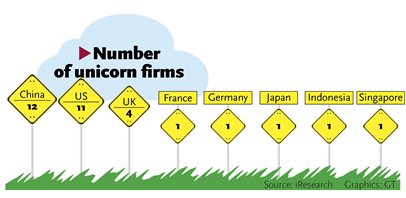
More rational investment urged amid bubble concerns
Despite its rapid growth, China's sharing economy is facing difficulties due to low profitability and the lack of a sustainable business model, and concerns about a bubble are growing.
From shared bikes to phone chargers to baby strollers, products embedded in the "sharing economy" umbrella have been swarming into people's lives in China in recent years. The concept of the sharing economy was mentioned in the government's 13th Five-Year Plan (2016-20) unveiled in March 2016, in which an Internet-powered sharing mechanism was called for.
Though Western developed countries came up with this concept back in 2009, the Chinese market has been catching up rapidly, and it accounted for 33 percent of the global sharing economy market in 2015 in terms of market share, according to a report released by the Beijing-based market research firm iResearch on August 16.
Across the globe, there were 32 unicorn companies in the sharing industry that were listed on the CB Insights ranking in 2016, with a total valuation of over $231.4 billion, the iResearch report showed. Of the 32, 12 were Chinese companies.
However, the boom of the sharing economy reflects one of the fundamental problems that China's economy is facing today, which is the outflow of capital from the real economy, Chen Ji, director of the industrial research department at the Capital University of Economics and Business, told the Global Times on Sunday.
"More and more investors are putting their cash into the red-hot sharing industry, generating a supply glut," he said, noting that it also shows that investors are still eager for short-term gains.
Some Western media reports have applauded the rapid development of the sharing economy in China. CNBC listed various types of shareable products and services in a recent report, quoting an expert named Andrew Atkinson as saying that "the sharing economy is only as strong as it is in China due to cashless transactions."
The South China Morning Post also noted the amount of money pouring into the sector in a recent opinion page article, with some tech start-ups gaining heavyweight support, such as bike-sharing platform ofo, which is being backed by Chinese e-commerce giant Alibaba Group.
"The large number of shared bikes that have swarmed into the market like locusts over a field of corn have disrupted the market order. More importantly, it means that the market is not profitable anymore," Chen said.
Overheated market
When there was only one player in the bike-sharing market, it was possible to earn net profit of about 50 yuan ($7.5) for one bike every day. But when more than 10 other firms edged in, the figure fell to less than 5 yuan, Chen noted. "In addition to low profitability, the period for the investment return is long, and there are potential risks."
Another problem for the sharing economy is that some business models are not sustainable and there is not a model that is suitable for all firms, Zhang Yi, CEO of iiMedia Research, told the Global Times on Sunday. "Like the latest shared air conditioners - the business model doesn't make any sense, as the summer in northern regions is very short and the product will not be used very often," he said.
In this case, the costs - both in production and operation - will be too heavy, Zhang noted, adding that it's always easier to come up with an idea than to operate it in a sustainable way.
While bike-sharing firms like ofo and Mobike have been placing thousands of bicycles onto the streets, some bike-sharing start-ups like 3Vbik have failed due to a drain of financing channels. Also, some consumers have claimed that it is difficult to get back their deposits when using shared battery chargers.
China's economy is also facing a dilemma. On the one hand, the central government encourages innovation as well as consumption-driven growth; on the other hand, some entrepreneurs have been pursuing low-quality projects, which causes a waste of both money and resources, Chen noted.
"Industry associations should play a bigger role in disclosing necessary information and warning investors about risks, as the lack of insightful information has led to many irrational investments," he said.


















































